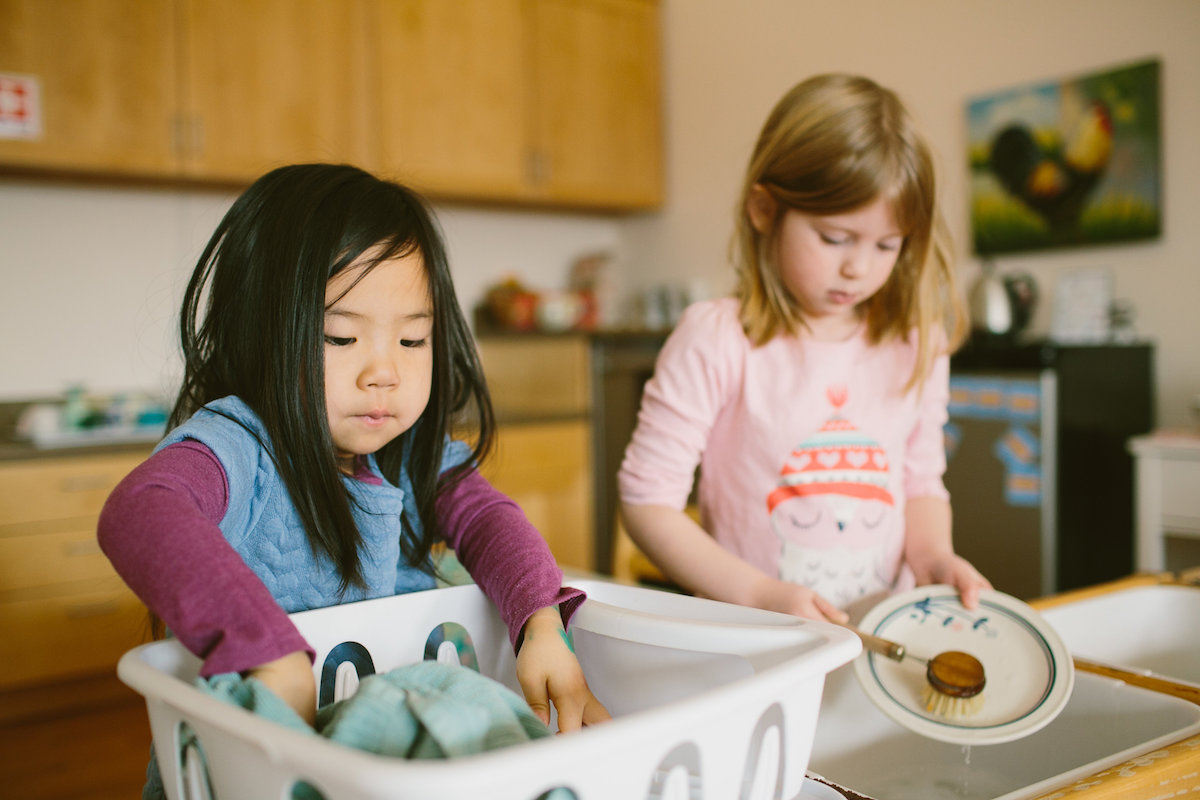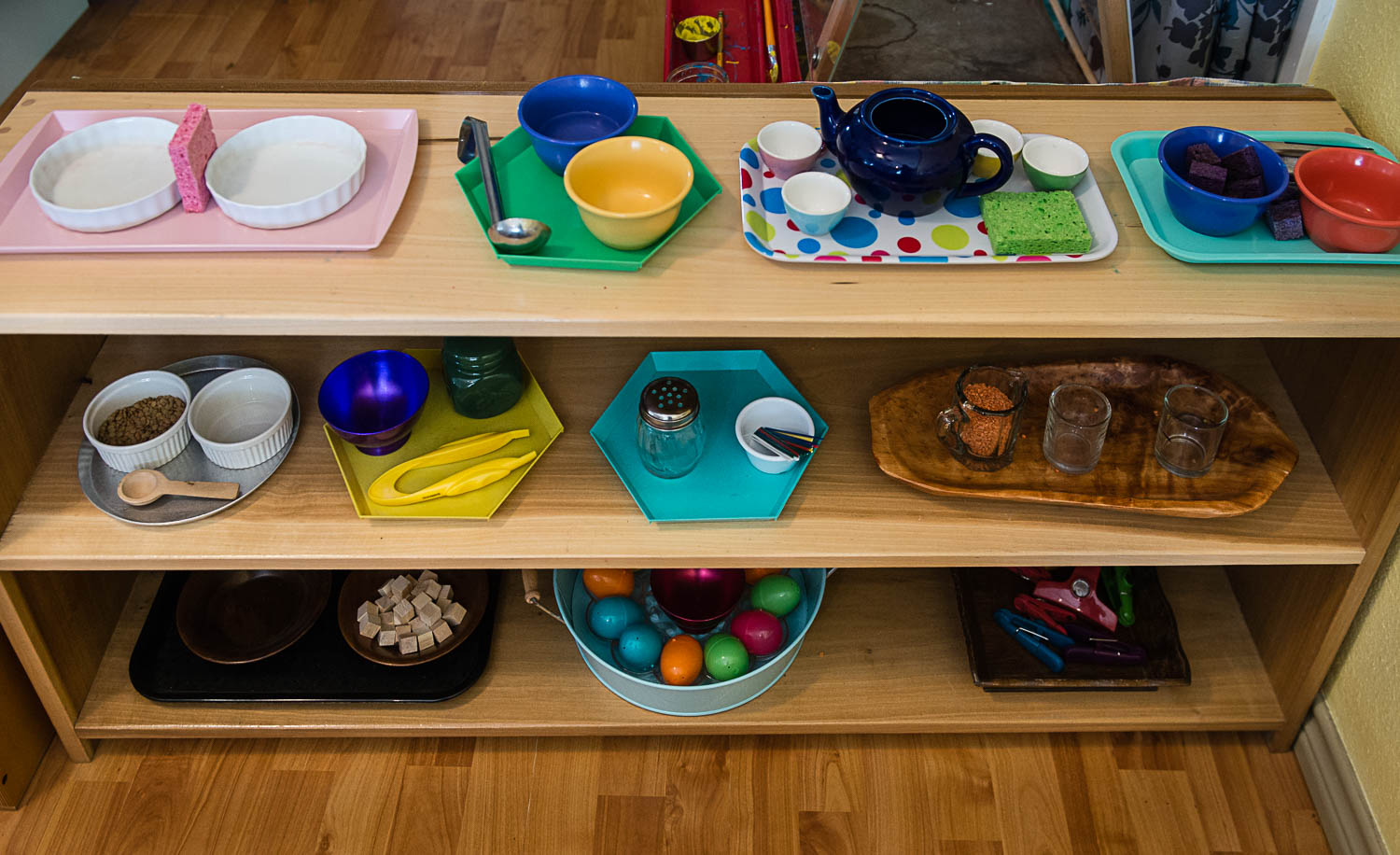Simply put, practical life activities are activities of everyday living. The things we do take care of ourselves, others and the environment around us all count as practical life activities.
Washing, cleaning, dusting and other such activities all fall under this category.

Through her observation of children around the world, Dr. Maria Montessori realized that children are capable even from a very young age in participating in these activities of self-care as well as caring for the environment. She then formulated material based on the culture and climate that the children live in. She made the activities child-sized – she either cut down larger items or procured small-sized ones so that children can be successful while doing these activities.
In Montessori classrooms and homes around the world, children willingly and joyfully participate in washing clothes, watering plants, cleaning windows, sweeping and mopping floors. When babies are born, we perform these activities to them – we wash and clean them, we feed them and take care of their other practical life needs. But as children grow more capable of using their hands and their body, especially once they start walking, they can participate in these practical life activities along with us.
The young child’s ‘Absorbent Mind’ is always taking in the movements and language around them. When we offer practical life activities to the child, we give them an opportunity to practice the skills that they have been observing and absorbing so far.

Benefits of Practical Life Activities:
- Practical life activities aid in fine and gross motor development. Squeezing out wet cloth requires builds strength of the upper body while practicing how to button something improves fine motor movement.
- When children begin to do these activities for themselves as well as for others, they begin to become independent and this further builds their self-esteem and confidence.
- When children take care of themselves and the environment, they begin to feel like contributing members of the family and community.
- Participating in practical life activities builds a child’s sense of responsibility.
- The various nouns and verbs that we use around practical life support language development.
- Working with water, soap, sponges and sprays provides rich experiences for their sensorial development.
- Practical life activities call for repetition of movement – they may have to sweep a place many times before it gets clean. This kind of repetition builds concentration and focus.
- Children gain real life skills that serve as a foundation into becoming self-sufficient adults later in life.
- All practical life activities require children to think about the sequence and solve problems. This builds logical thinking and mathematical skills.
- These activities help build a child’s spatial awareness – how do I move within this space to complete this activity?
How do we set up these activities?
Most practical life activities can be set up using things already available in the home. For example, we just need to cut down a kitchen wipe sponge to the size of the child’s palm and place it one a tray and we have a ‘Wiping the table’ activity. Other things that are important showing children where the material is kept (somewhere they can access it independently), how to use the material and how to put it back to its place.

- We must keep the child’s hand and abilities in mind while setting up the activity – can they hold this broom? Will they be successful in using this spray bottle?
- Set up all the materials related to that activity in a tray or basket so children know they belong together – for cleaning windows, set up a small spray bottle with some water, a small squeegee wiper and a sponge inside a basket. Bonus points if you can find these three in the same colour – this helps the child to understand that these coloured items belong together.
- Pretend toys won’t work for practical life activities as they don’t perform the functions of the real material. Instead of a set of pretend vegetables – try offering the real vegetable and set up a vegetable washing activity. The sensorial experience of real things far exceeds those of pretend ones.
- Make sure the soaps or polish you are offering is always non-toxic.
Try to include a variety of materials to introduce children to them. Some activities can be set up in steel, brass, copper and ceramic instead of only using plastic.





